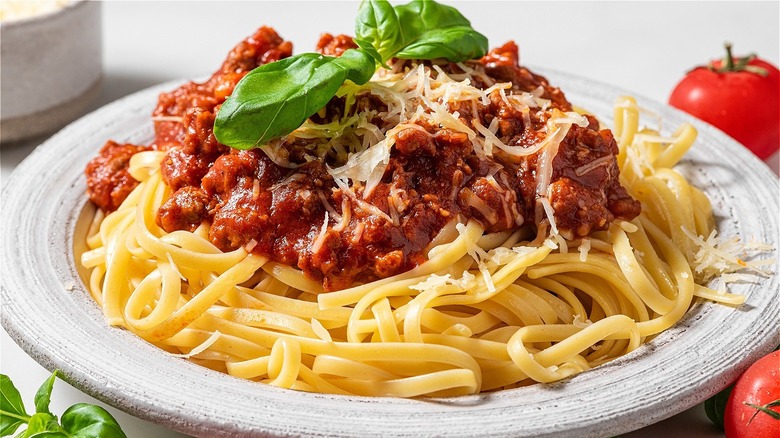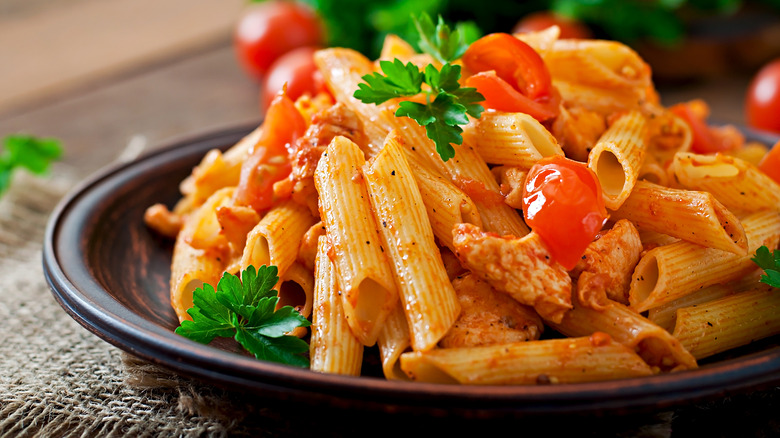Why You Should Think Twice About Freezing Cooked Pasta
There's no limit to what you can do with pasta. You can use it in everything from easy spaghetti recipes to huge pasta bakes to feed a hungry crowd. You may like it so much, in fact, that you often find yourself with leftover pasta. Of course, anyone can tell you that keeping your leftovers properly stored is important for maintaining your food's safety (and enjoyability). Improper storage, such as leaving pasta on the counter, is obviously a way to get sick — or far worse, as was the tragic case of a Belgium man in 2008 (via National Center for Biotechnology Information). When properly stored, on the other hand, not only is leftover pasta safe to eat, but it can also be just as delicious as it was when you made it fresh.
The refrigerator is no doubt one of the safest and best ways to save leftover pasta. But what if you wanted to eat your remaining linguine in a couple of weeks instead of tomorrow? Would it be so wrong to put it in the freezer to keep it fresh for longer? After all, you'd still have to heat it up again as you would with refrigerated rigatoni or penne, so what's the big deal? According to some, it's not that simple.
Your pasta may seem overcooked
The verdict is in, and it says that you may not want to put leftover pasta in the freezer. If you do, you may throw it in the microwave until steaming hot and find that it looks perfectly fine. But when you take that first bite, to your disgust, the spaghetti may somehow taste like it's been overcooked, and the sauce watery and bland. Why is that?
The answer, according to Drexel University professor Jonathan Deutsch, Ph.D, in a discussion with EatingWell, is that certain starches can't freeze the way other foods can. When you attempt to reheat frozen pasta, the cell walls of its starches break, which leads to the pasta becoming "overcooked" even if it wasn't before. As for the sauce, Deutsch explains that the freezing process "weakens the bond between" the moisture and starch (in this case, the starch from the pasta) found in the sauce. When reheated, then, it seems watery instead of rich and homogenous. Before you get too discouraged, however, know that freezing pasta is indeed possible. The Kitchn suggests cooking your pasta until it's less than al dente before freezing, so you avoid that mushy, overcooked texture when you reheat it.

